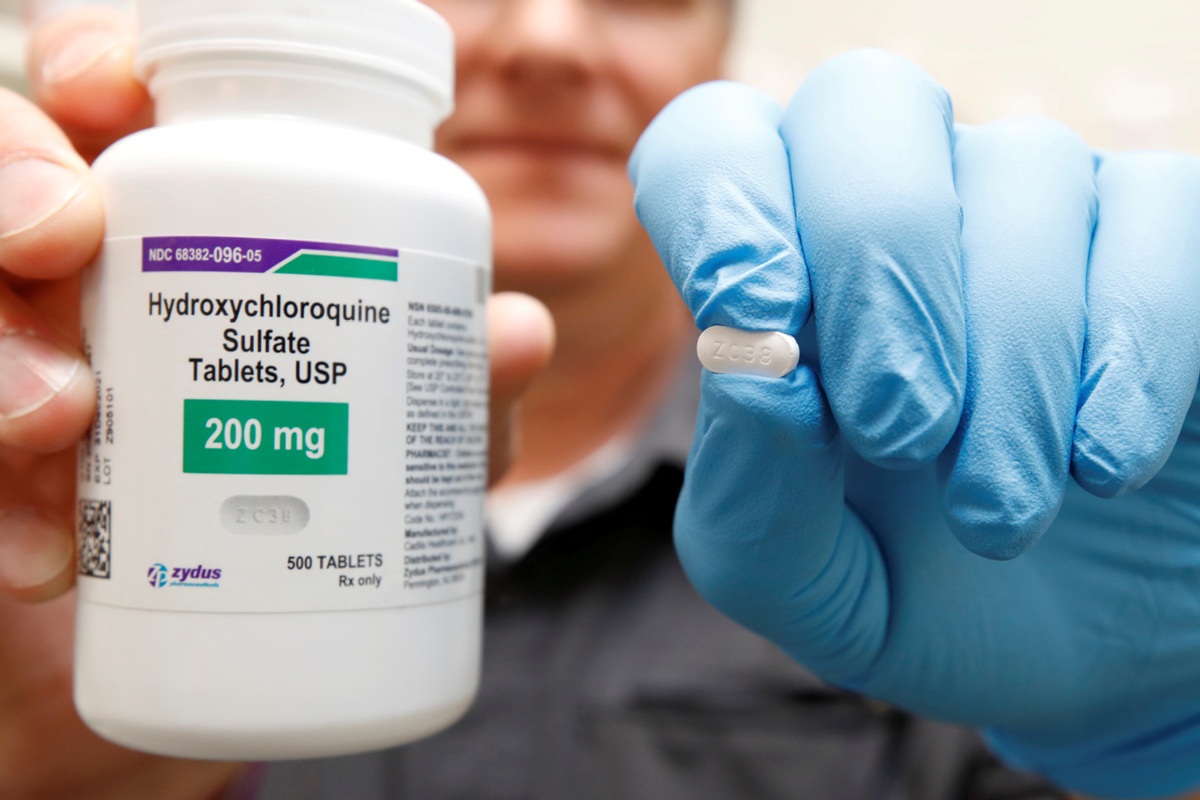Concern over drugs used to fight virus


A major study has called into question the safety of administering hydroxychloroquine alongside azithromycin, two drugs that have been used in combination to treat COVID-19 patients.
The study, which was published in the medical journal The Lancet, found that short-term courses of hydroxychloroquine and azithromycin, which is an antibiotic widely used for respiratory infections, produce increased risk of angina, chest pain and heart failure.
Short-term use of hydroxychloroquine by itself was not correlated with heart problems, however long-term use of the drug was linked to an increase in cardiovascular-related mortality, according to the study, which was coordinated by a consortium of researchers called the Observational Health Data Sciences and Informatics collaborative, or OHDSI.
Hydroxychloroquine has been explored as a potential treatment for COVID-19, both alone and in combination with other drugs including azithromycin.
Daniel Prieto-Alhambra, an epidemiologist at the University of Oxford who co-authored the study, said that the team was relieved to find "no worrying side effects in the short term use of hydroxychloroquine".
"However, when prescribed in combination with azithromycin, it may induce heart failure and cardiovascular mortality and we would urge caution in using the two together," Prieto-Alhambra said.
Hydroxychloroquine is a drug best known for its use to treat and prevent malaria, and it is also used to treat some autoimmune diseases including rheumatoid arthritis and lupus.
The medication caught the attention of mainstream media in March when United States President Donald Trump said the US Food and Drug Administration, or FDA, was looking to approve its use as a treatment for COVID-19.
Dispensed co-prescriptions of hydroxychloroquine and azithromycin increased by 1,044 percent from February to March of this year in the United States, according to data from the Centers for Disease Control and Prevention.
Hydroxychloroquine made numerous headlines again in May when Trump said he had been taking the drug.
In June the FDA reversed the emergency use authorization for hydroxychloroquine as a treatment for COVID-19, saying that "known and potential benefits no longer outweigh the known and potential risks". On Saturday, Trump said on Twitter that "many doctors and studies disagree" with the FDA ruling.
The OHDSI study involved a retrospective analysis over a 20 year period of more than 950,000 rheumatoid arthritis patients who had been prescribed hydroxychloroquine alone or in a combination treatment.
It found that hydroxychloroquine treatment in the long term had a 65 percent relative increase in cardiovascular-related mortality, compared to sulfasalazine, another arthritis drug.
Hydroxychloroquine and azithromycin used together as a short-term treatment had a cardiovascular mortality risk that was more than double that associated with sulfasalazine.
Scientists from multiple nations contributed to the OHDSI study.

































